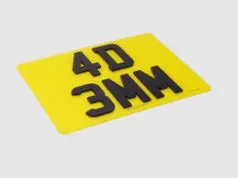
Buying a new car is an important decision that requires thorough research and careful consideration of various aspects.
In this guide, we will explain five key elements that you should consider before making your purchase: thorough vehicle and dealership research, establishing a realistic budget, test driving and checking the vehicle’s history, understanding the warranty and after-sales service, and knowledge of the Lemon Law and your rights as a consumer.
These steps will help you make an informed decision and ensure a satisfying experience when buying a new car.
1. Thorough Vehicle and Dealer Research

Before buying a new car, it’s important to conduct thorough research on both the vehicle itself and the dealer. Research the car’s features, performance, reliability, and safety. Read reviews and opinions from owners of the same model to get an idea of its real-world performance.
Additionally, research the dealer’s history. Look for information about their reputation, the quality of their customer service, and the experiences of other buyers. You can check online reviews, consult automotive forums, or even ask friends and family about their experiences.
This research will enable you to make an informed decision and avoid unpleasant surprises. You’ll gain a clear understanding of what to expect from the car and the dealer, which will help you make a successful purchase.
2. Budget and Financing

When buying a new car, it’s important to consider the financial aspects and establish a realistic budget. Evaluate your personal finances and determine how much you’re willing to spend on a car, considering both upfront costs and ongoing expenses.
Start by assessing your income, expenses, and available savings. Set a spending limit that is comfortable for you and doesn’t compromise your financial stability. Take into account upfront costs such as down payment and taxes, as well as ongoing costs like insurance, fuel, and maintenance.
If you need financing, research the different options available and compare interest rates. You can consider a bank loan, dealership financing, or leasing. Make sure to fully understand the terms and conditions of each option, including the loan duration and monthly payments.
3. Test Drive and Vehicle History Check

When purchasing a new car, conducting a test drive is crucial. This allows you to evaluate its performance, comfort, and maneuverability. Additionally, verify the vehicle’s history using services like Carfax to gather information about its past, including any significant accidents or previous damages. This helps you make an informed decision and avoid unpleasant surprises in the future.
A test drive allows you to experience firsthand how the vehicle feels, while a vehicle history check provides important details about its past. Both steps are essential for making a smart purchasing decision and ensuring that you’re acquiring a reliable and well-maintained car.
4. Warranty and After-Sales Service

It’s essential to understand the details of the manufacturer’s warranty and the after-sales service provided by the dealer. The warranty is a promise made by the manufacturer to correct any manufacturing defects during a specific period. It’s important to know what aspects the warranty covers, how long it lasts, and if there are any restrictions or special conditions.
Additionally, familiarize yourself with the maintenance and repair services offered by the dealer. Find out what types of services are included and what’s not, as well as any additional costs you may face. Some questions to ask include: Does the dealer offer free scheduled maintenance? What is the process if you need to use the warranty or repair a component? Can you rely on the dealer’s customer service to receive adequate and timely support?
Understanding the warranty and after-sales service provides peace of mind and allows you to make an informed decision. It helps you have clarity about the support and assistance you’ll receive after the purchase. Make sure to clarify all your doubts before finalizing the transaction to avoid unpleasant surprises and enjoy a satisfying ownership experience.
5. Lemon Law and Your Consumer Rights

The Lemon Law is a type of consumer protection law. It provides a legal recourse for individuals who purchase or lease a defective vehicle, commonly known as a “lemon.” The specific details of the Lemon Law may vary depending on the jurisdiction.
The Lemon Law generally applies to new vehicles that are still under warranty, although some jurisdictions may also cover used vehicles under certain circumstances. It’s designed to protect consumers who have acquired vehicles with significant defects or mechanical problems that affect their use, value, or safety.
Under the Lemon Law, if you have purchased or leased a vehicle that meets the criteria of a lemon, you generally have the following rights:

- Right to a refund or replacement: You have the right to a full refund or a replacement vehicle. The manufacturer may choose to repair the car, but if the repairs are unsuccessful, you have the right to a refund or replacement.
- Right to have the car repaired: If your car is not a lemon but has a defect covered by the warranty, you have the right to have the car repaired. The manufacturer must repair the car at no cost to you and within a reasonable time.
- Right to be compensated for expenses: In case your car is deemed a lemon, you may be entitled to receive compensation for additional expenses incurred, such as the cost of towing the vehicle to the dealership, rental of substitute vehicles, and lost wages due to car issues.
If you encounter difficulties related to the Lemon Law, you have the right to be represented by an attorney. A lawyer specializing in this area can provide you with legal guidance, help you understand your rights, and assist you in filing a formal claim against the vehicle manufacturer. Their legal expertise will be invaluable in protecting your interests.













